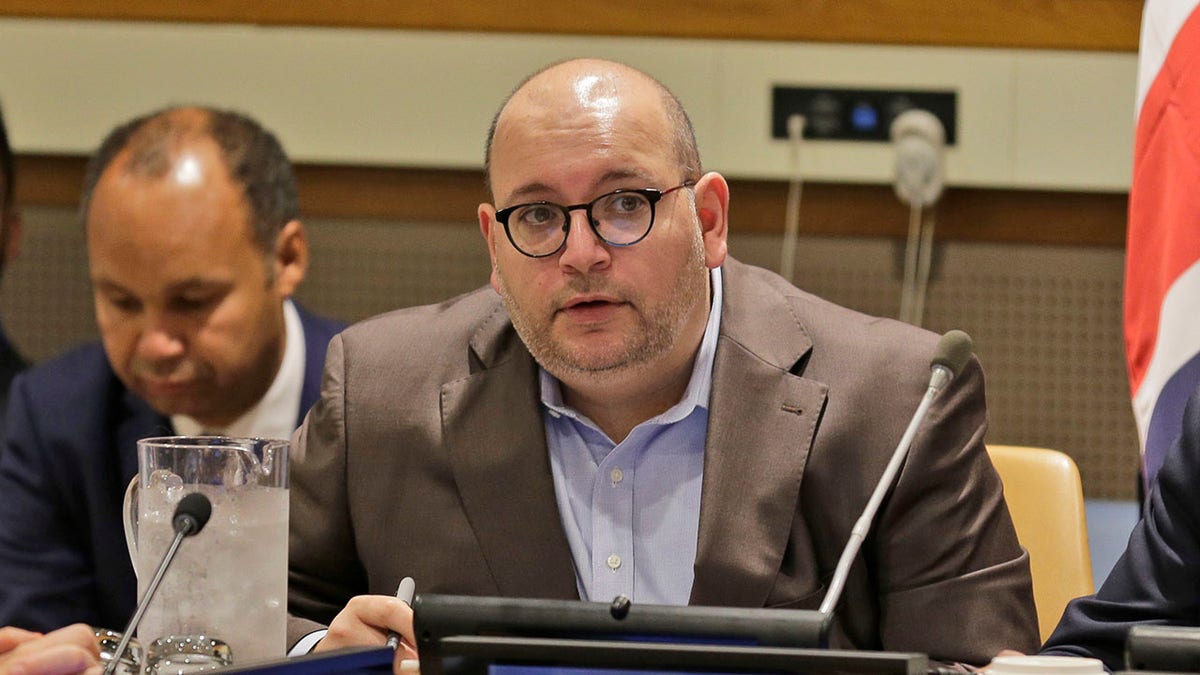Fox News Flash top headlines for Nov. 23
Fox News Flash top headlines for Nov. 23 are here. Check out what's clicking on Foxnews.com
A Washington Post journalist who was held captive and psychologically tortured by the Iranian government for 544 days was awarded $180 million Friday evening in his family’s lawsuit against the Middle Eastern country.
Reporter Jason Rezaian was arrested at gunpoint in Iran along with his wife in 2014 on dubious espionage charges. He was a dual citizen of the U.S. and Iran and was living there with his family at the time.
“Iran seized Jason, threatened to kill Jason, and did so with the goal of compelling the United States to free Iranian prisoners as a condition of Jason’s release,” U.S. District Judge Richard J. Leon in Washington, D.C., said in his ruling.
REPORTER JASON REZAIAN REVEALS 'TORTURE' HE ENDURED IN IRANIAN PRISON

Journalist Jason Rezaian participates in a panel discussion on media freedom at United Nations headquarters, Sept. 25, 2019. (Associated Press)
“Holding a man hostage and torturing him to gain leverage in negotiations with the United States is outrageous, deserving of punishment and surely in need of deterrence,” Leon added.
Rezaian was held at Tehran’s Evin prison and convicted by the Revolutionary Guard in a closed court on the unexplained spy charges.
Earlier this year, Rezaian told The Guardian that "for the first six or seven months, [the threat of execution] was pretty regular.”
"It was the constant anxiety of: 'Are they going to kill me, are they going to keep me forever or am I going to be released tomorrow?' You don't know what to believe. That's the method. That's the torture,” he said.
Iran has not responded to Rezaian’s lawsuit and it’s unclear how the money would be paid – if at all. It could come from the United States Victims of State Sponsored Terrorism Fund.
This year the Trump administration designated Iran’s Revolutionary Guard, named as a defendant in Rezaian’s case, as a terrorist organization.
Rezaian has not commented on the ruling.
The Washington Post’s executive editor, Martin Baron, said in a statement on the ruling, “We’ve seen our role as helping the Rezaians through their recovery. Our satisfaction comes from seeing them enjoy their freedom and a peaceful life.”
CLICK HERE TO GET THE FOX NEWS APP
Rezaian was released in 2016 and wrote a memoir about his experiences this year called “Prisoner.”
The Associated Press contributed to this report.








































